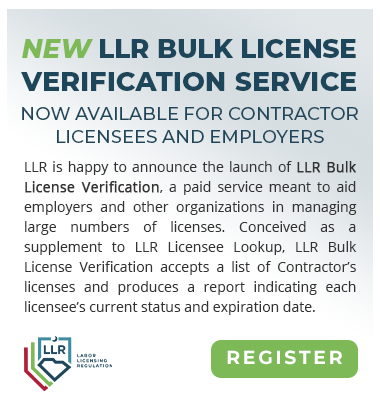
A roofing company mission statement is a document which reflects the vision, values, and purpose of a company. It also identifies its operational goals and the products it offers to its target customers.
To be realistic and to help the company reach its goals, the mission should be clear. It is also important to keep the statement short and clear so that stakeholders understand it.
The company must also be able communicate its goals to employees in a way that is understandable. This will ensure that they don't feel like they're being ignored or that they're not using their skills to help the business grow.
A roofing company should be capable of writing its mission statement in a way that is easily understood by its customers and other relevant stakeholders. This will help the company attract more clients and customers.

A company's mission statement should be consistent with its core strengths. This will help ensure that the company is able achieve its goals and can reach its strategic objectives.
Also, it is important to document all of the procedures and processes that the company uses to achieve its goals. This will ensure that the company is achieving its goals and that it is doing the best it can to meet the demands of its customers.
Once you've compiled all the activities your company has taken to achieve these goals, it is possible to use them to create a business mission statement. Then, you can have it added to your website or brochure.
Contractors find it helpful to have a mission statement that guides the company. It can help contractors decide the best direction to go when making their decisions. It also helps them keep track and make sense of their progress.
It is not difficult to write a mission statement that will help your company reach its goals. It is important to keep in mind that a mission statement should not be written down. You must have it with you at all times and constantly revise it to ensure it remains aligned with your company's vision and goals.

It is important that your mission statement clearly describes the steps that your employees must take in order for the company to meet its goals. These steps could include meeting deadlines, completing projects on time and maintaining quality standards.
You should also be capable of writing down the systems used in your company to complete projects. This will enable your company to monitor the progress of your employees and ensure they are meeting their daily expectations.
FAQ
What documents must I show to get building permission?
You will also need to show proof of your SCA.
-
There are plenty of parking spaces available.
-
They are also suitable for those who need to access them.
-
All utilities are readily available.
-
All works are compliant with the relevant planning regulations.
Where can I obtain more information about building permits
Check with your local government authority (for example, NSW Local Government Association) or contact your local real estate agent. They should be available to help you determine the right steps to take to get building permission.
What does my SCA cover
Your SCA will specify the exact scope of work that needs to be done, including how long it will take, what materials need to be used, what equipment is needed, and whether any special permits are required.
Is there a limit to the amount of money I can spend on the project?
No. No. You might be able to negotiate lower prices with the contractor.
Is a service contract a warranty?
Service contracts are not warranties. A service contract is an agreement between two people to exchange goods or services. If the product is not performing satisfactorily, the customer agrees with the seller to cover the repair or replacement costs. This contract is also called a maintenance contract.
What is a "service contract agreement"?
A Service Contract Agreement is an agreement between two or more parties to provide services. The SCA specifies the services to be provided, their cost, time and effort required, who will pay for them, and when they should start. The SCA also describes what happens if either side violates its obligations.
How do I obtain a service agreement?
You can obtain a standard form of SCA from your local government or contracting authority. You can also use our online quote generator for more information and send us your details to receive further information.
Statistics
- Reasonable late fees go up to 25% per year on unpaid sums. (lawdepot.com)
- (1) Except as provided in paragraphs (a)(4) and (a)(8) of this section, if the estimated amount of the contract or subcontract is $10 million or more, the contracting officer shall request clearance from the appropriate OFCCP regional office before- (acquisition.gov)
- (3) The contracting officer may provide for a contract price adjustment based solely on a percentage rate determined by the contracting officer using a published economic indicator incorporated into the solicitation and resulting contract. (acquisition.gov)
- (v) Place or places of performance of the prime contract and first-tier subcontracts estimated at $10 million or more, if known. (acquisition.gov)
- Depending on the client's trustworthiness and financial stability, a deposit is usually 10 to 50% of the total contract amount. (lawdepot.com)
External Links
How To
What should a service arrangement include?
Any business relationship requires a Service Agreement. It describes what you expect of each other and how to achieve it. It also outlines when and where the other party must fulfill its contractual obligations.
A successful SA must include these key elements:
-
The scope of both the work and the services required.
-
Details about the payment terms.
-
An agreed price for your project.
-
Additional costs, such as VAT, etc.
-
Discuss any other matters.
-
Who will be held responsible for any problems that may arise on the job?
-
How disputes will be resolved.
-
What happens if one of the parties breaches the contract?
-
What happens in the event of a dispute.
-
When does the contract come into effect?
-
What happens if a party doesn't perform.
-
What time do you need to pay your invoices?
-
Who pays for travel costs?
-
Where the money is coming from.
-
What happens if the client decides to change his mind about the project.
-
What happens when the supplier doesn’t show up.
-
Who is allowed to access the site during construction
-
What happens if the customer cancels the project.
-
What happens if the product is faulty.
-
What happens when the manufacturer refuses supply?
-
What happens if equipment fails?
-
What happens when the project takes longer to complete?
-
What happens when the work is not completed within the specified timeframe?
-
What happens if the project is not up to standard?
-
What happens to the cost overruns?
-
What happens to the materials if they are not delivered on-time?
-
What happens if the material arrives damaged?
-
What happens when the products don't meet standards?
-
What happens if the job has to be canceled?
-
What happens when the company goes under?